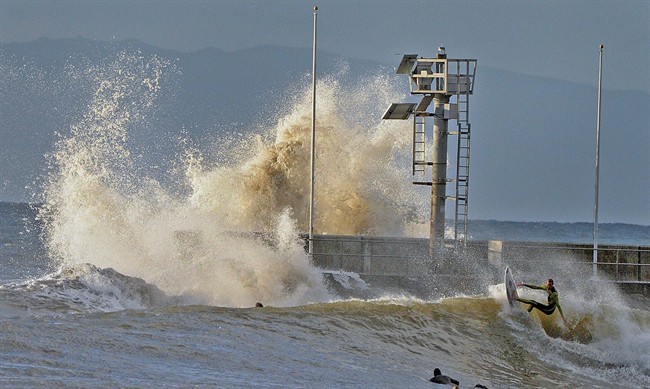Sea levels are rising faster than they have in 3,000 years and are being accelerated by human-caused global warming, according to two new studies.

The first study, published in the Proceedings of the National Academy of Sciences also concluded that without global warming, sea levels would have risen by less than half of that and may have even fallen.
READ MORE: COP21—Rising sea levels flood Bangladesh village
“The 20th century rise was extraordinary in the context of the last three millennia — and the rise over the last two decades has been even faster,” said Robert Kopp, the lead author and an associate professor in Rutgers’ Department of Earth and Planetary Sciences.
The study — which used statistical analysis developed at Rutger’s University — found that the global sea level rose by 14 cm between 1900 and 2000.
In order to determine the various sea level changes over time, the researchers went around the world looking at salt marshes and coastal locations. They used single cell organisms that are sensitive to salinity, as well as coral, sediments and more.
Using that data, they concluded that sea level had actually declined by about eight centimetres from 1000 to 1400 at a time when Earth had cooled by about 0.2 Celsius. Today, Earth is about 1 C warmer than it was in the late 19th century. (The study looked back at 3,000 years, but researchers weren’t as confident in the most distant 300 years.)
The study found that, without global warming, the sea-level change would have likely been somewhere between a decrease by three centimetres and a rise of about seven centimetres.
“There’s no question that the 20th century is the fastest,” said Kopp. “It’s because of the temperature increase in the 20th century which has been driven by fossil fuel use.”
Another study from the Potsdam Institute, which used different methods, came to a similar conclusion, finding that global warming is contributing to rising sea levels. In particular, the study estimates that sea levels will rise by 50 to 130 centimetres by the end of the century if greenhouse gas emissions are not reduced.
“With all the greenhouse-gases we already emitted, we cannot stop the seas from rising altogether,” said Anders Levermann, Research Domain Co-Chair for Adaptation at the Potsdam-Institute for Climate Impact Research (PIK) and co-author of the paper. “But we can substantially limit the rate of the rise by ending the use of fossil fuels.”
–with files from The Associated Press
- Ontario takes action against chemical plant after Aamjiwnaang First Nation residents fell ill
- High benzene levels detected near Ontario First Nation for weeks, residents report sickness
- Enter at your own risk: New home security camera aims paintballs at intruders
- Beijing orders Apple to pull WhatsApp, Threads from its China app store




Comments